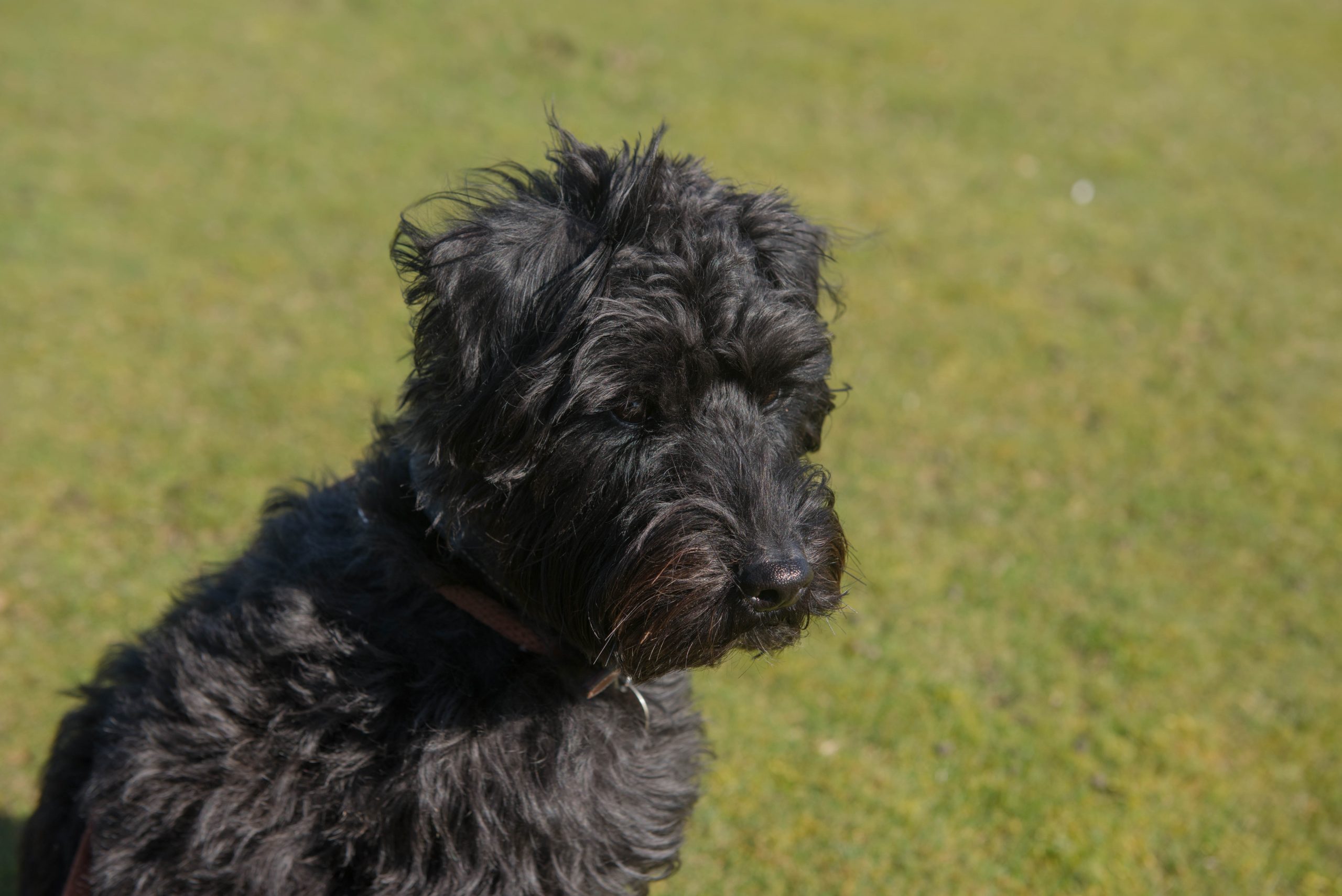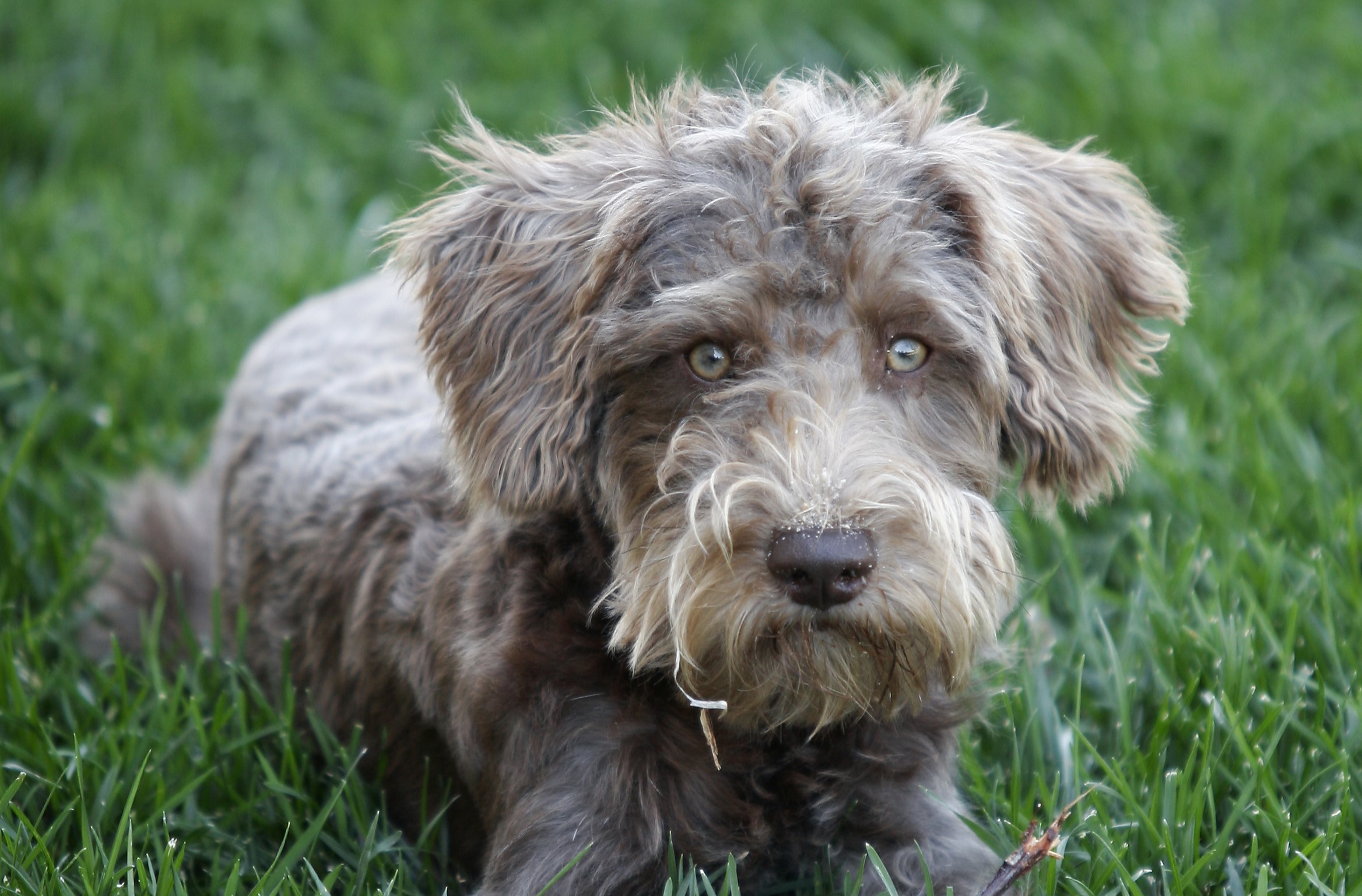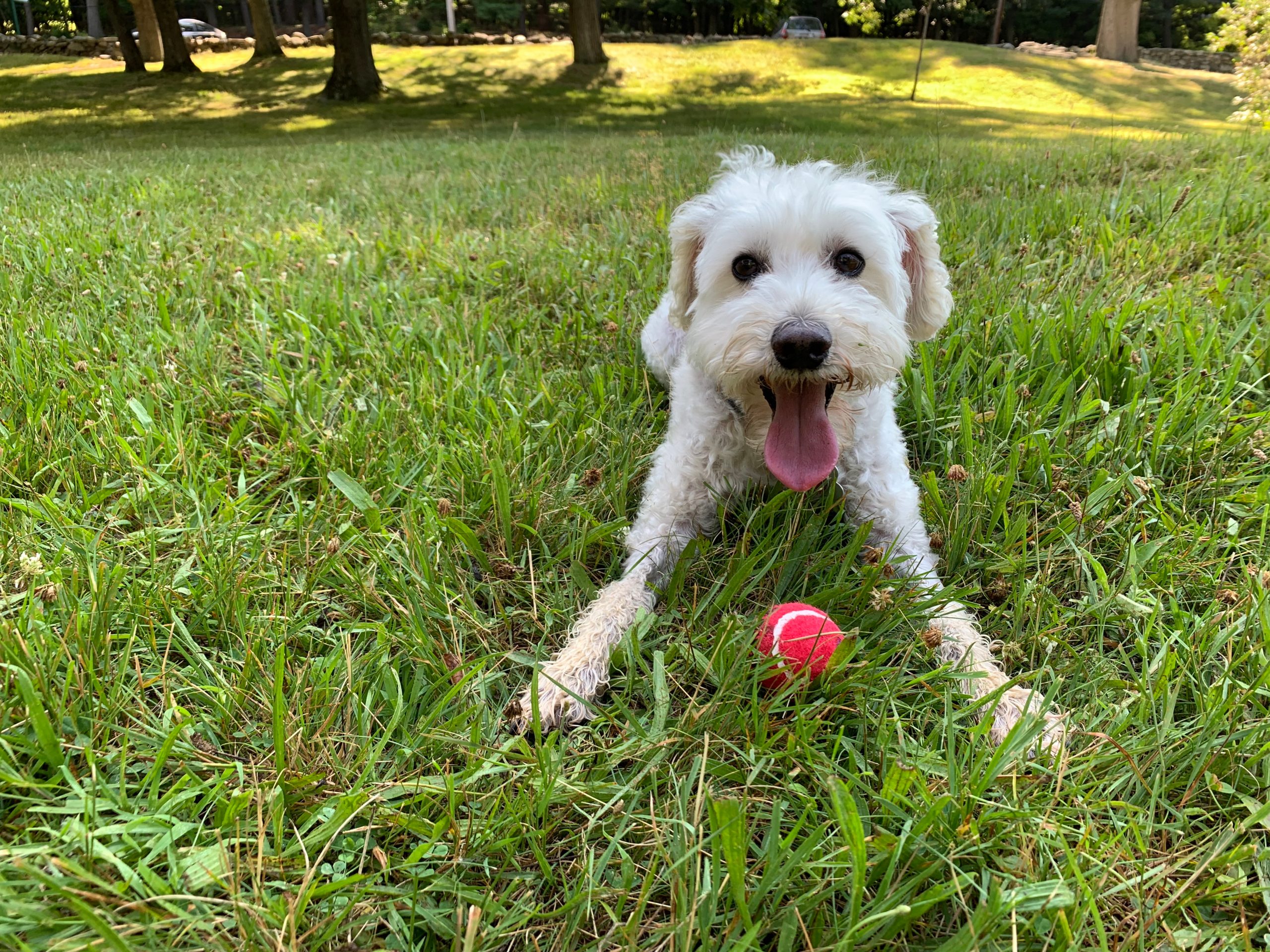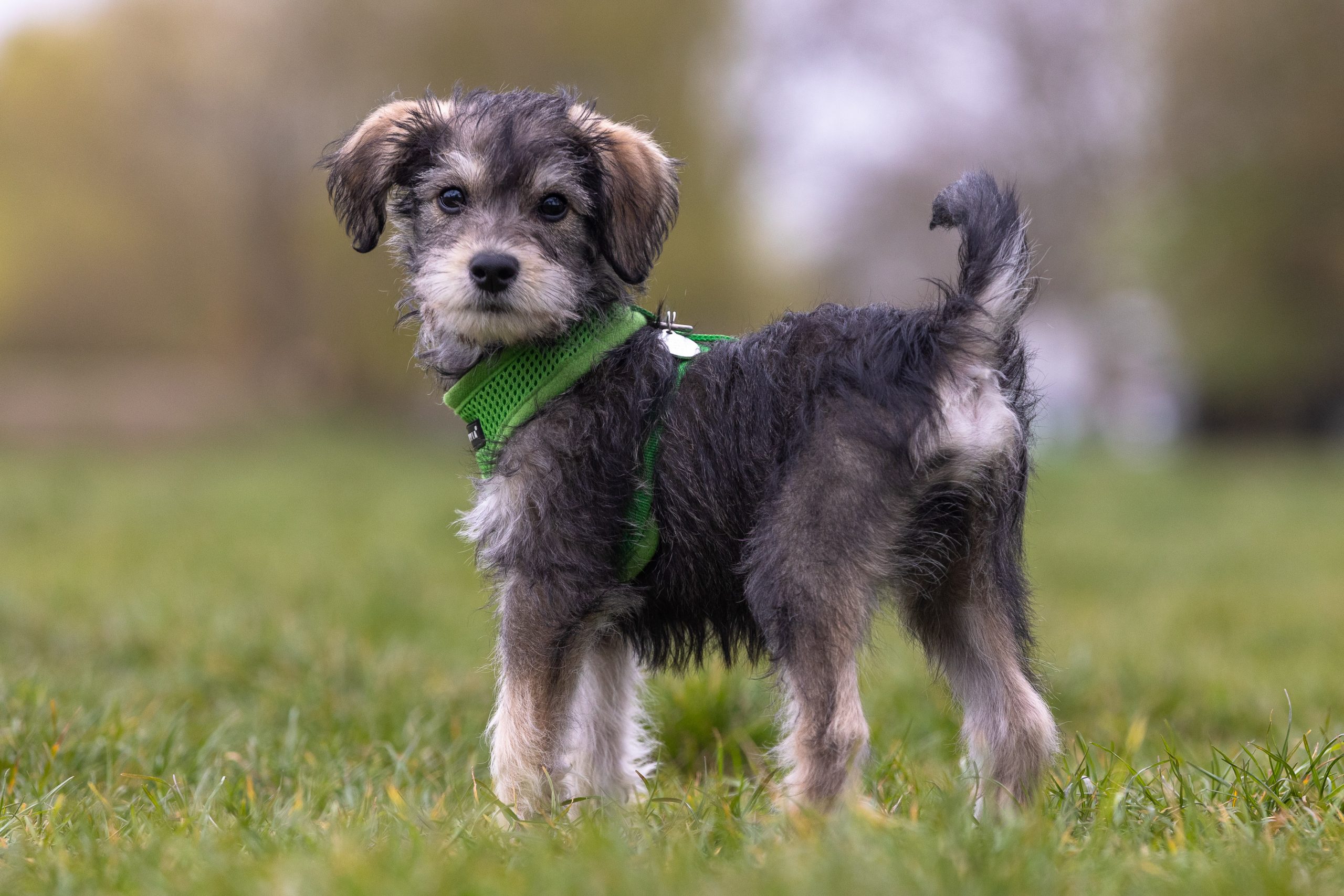Schnoodle
No products found which match your selection.
Shelter Dog Meal Donation Count:
No products found which match your selection.
The Schnoodle is a charming and versatile companion that blends the best traits of the Schnauzer and Poodle. Their adaptable size, intelligence, and affectionate nature make them suitable for a wide range of families and living situations. With proper care, exercise, and training, a Schnoodle can be a delightful addition to any home.
The Schnoodle is an intelligent and loving dog, ideal for families and individuals alike. Their friendly disposition combined with a low-shedding coat makes them a suitable choice for allergy sufferers.

Schnoodles emerged in the 1980s as part of the designer dog trend, seeking to blend the hypoallergenic coat of the Poodle with other popular breeds.




Schnoodles are generally healthy, but like all breeds, they can be prone to certain genetic conditions, including hip dysplasia, Luxating patella, and eye diseases. Regular vet check-ups are essential.
Their hypoallergenic coat requires regular brushing to prevent matting and professional grooming every few months to keep them looking their best.
Schnoodles possess a moderate to high energy level and benefit from daily walks and playtime to keep them mentally and physically fit.
Highly intelligent and eager to please, Schnoodles respond well to positive reinforcement training methods. Early socialization is recommended to develop a well-rounded dog.
A balanced diet suited to their age, size, and energy level will help maintain a Schnoodle's health. Consult with your vet for personalized dietary advice.
Schnoodles are more than just a cute face; they are intelligent, loving, and adaptable dogs that fit well into a variety of homes. Whether you live in a spacious house with a yard or a cozy apartment, a Schnoodle could be the perfect addition to your family. Remember, providing them with love, proper care, and attention will ensure a happy and healthy life together.
The Schnoodle, a crossbreed between a Schnauzer and a Poodle, is generally a robust and healthy dog, but they can inherit health issues from their parent breeds. Here are some common health concerns and recommended tests for Schnoodles:
By understanding the common health issues and recommended tests for Schnoodles, owners can be better prepared to care for their pets. Early detection and management are key to a healthy, happy life for your Schnoodle.
The iHeartDogs Free Rx Discount Card Program is a pet prescription discount card that can help you save money on your furry friend’s medications. The card is free to sign up for, and you can use it at participating pharmacies nationwide. To use the free program, simply show the card to your pharmacist when you pick up your pet’s prescription. The pharmacist will then scan the card, and you will receive a discount on the price of the medication.LEARN MORE
Caring for a Schnoodle, a cross between a Schnauzer and a Poodle, involves various expenses that can be categorized into initial and annual costs. Here’s a breakdown:
Total Estimated Annual Cost:
$2000 - $7300
It's important to note that these figures are estimates and can vary. Also, the first year of owning a dog can be more expensive due to one-time costs like spaying/neutering, initial vaccinations, and training. Regular budgeting for your dog's needs and an emergency fund for unforeseen costs are essential for responsible pet ownership.